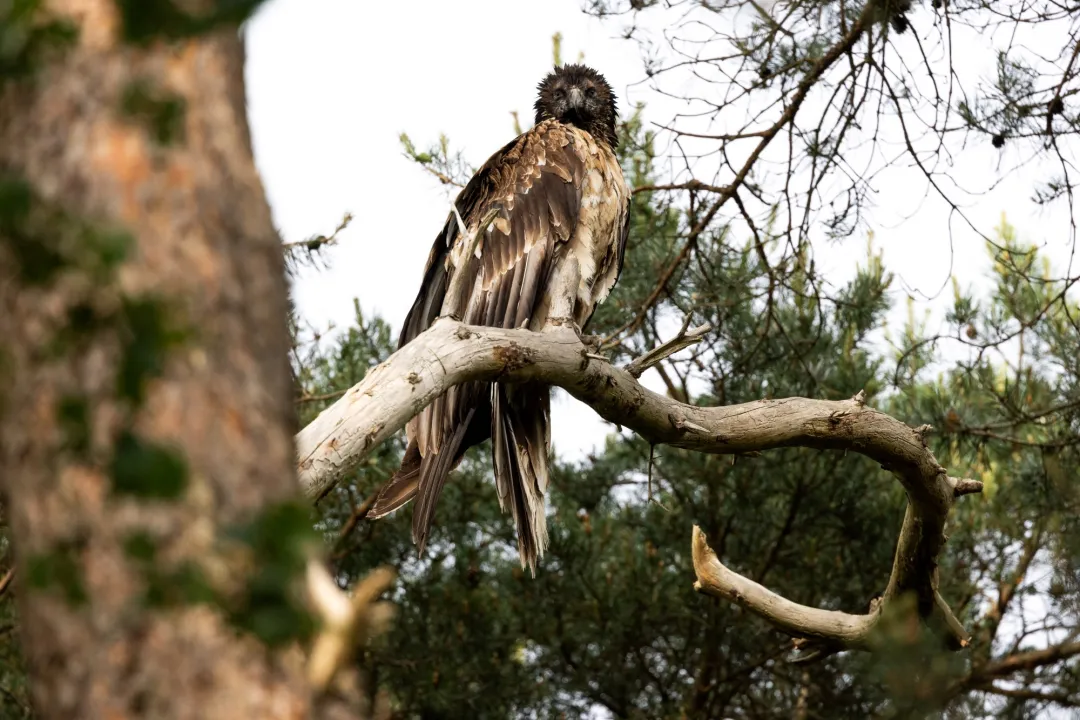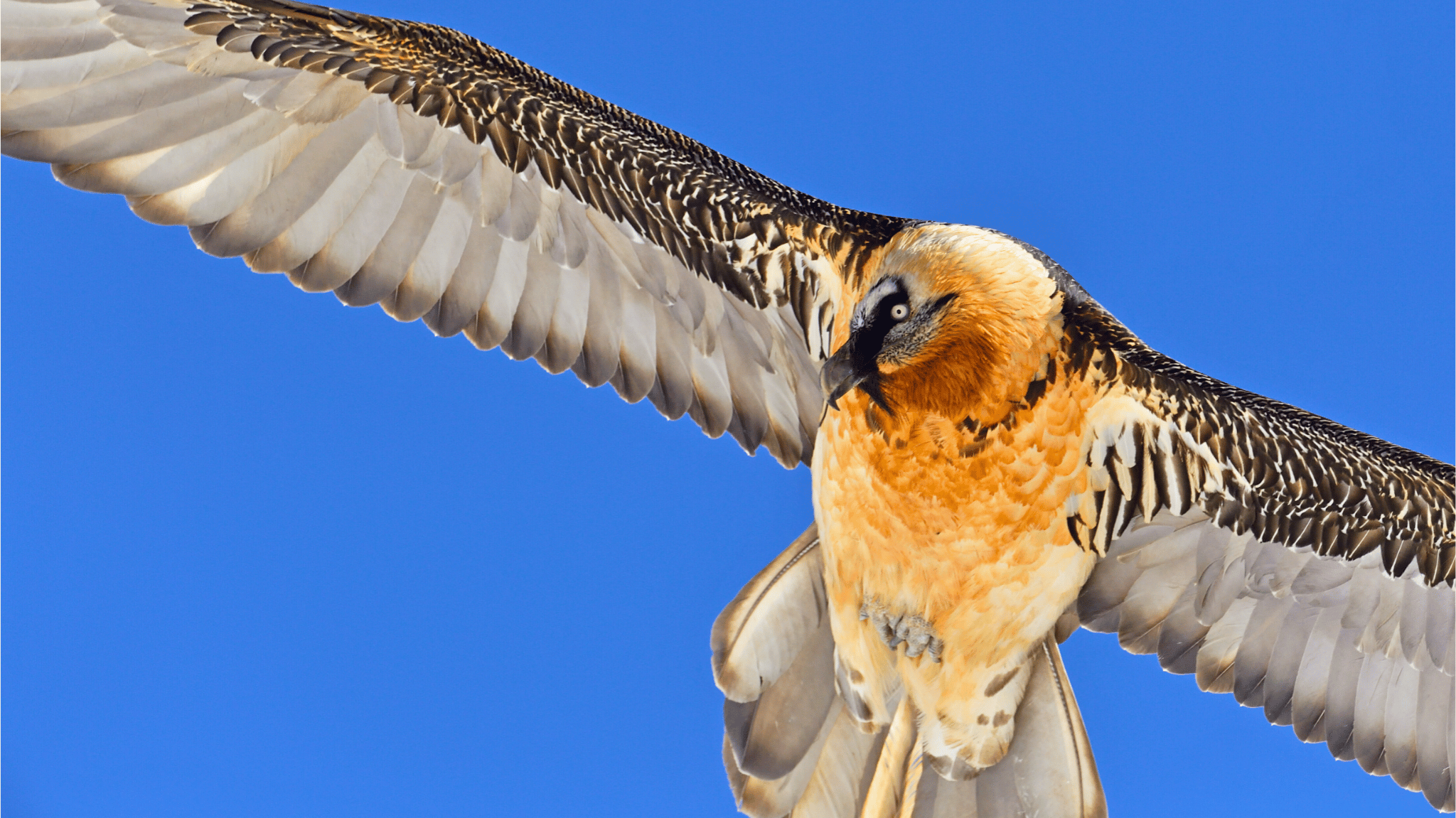
Yet another Bearded Vulture was released in the Natural Park of La Tinença de Benifassà as part of our newest Bearded Vulture reintroduction project in Maestrazgo, which aims to return the species to these mountains, where it became extinct about half a century ago.
Rescuing and rehabilitating the Bearded Vulture
The Bearded Vulture from Setcases in Ripollès was in a bad state and needed help. Rescuers recovered the male vulture and transferred it to the Wildlife Recovery Center of Torreferrussa on 31 August 2020 to receive treatment. Upon examination, the centre’s staff detected that the Bearded Vulture was underweight and had a fracture in his right wing. It took time and care until the bird made a full recovery. Months later, he was finally in the optimal condition to return to the wild!
Releasing the Bearded Vulture
Ahead of his release, the Bearded Vulture baptized “Setcases” was equipped with a GPS tag to track his movements and check his adaptation to the natural environment. Then, yesterday, on 16 March 2021, “Setcases” was released in the Mas del Peraire estate, in the Tinença de Benifassà Natural Park (Castellón), very close to the border with the Ports Natural Park. This marked the 13th release of a Bearded Vulture within the Maestrazgo reintroduction project and the first bird coming from Catalonia.

Translocating adult and floater Bearded Vultures
In addition to releasing captive-bred Bearded Vultures, the project translocates adult, floater birds from the Pyrenees to Maestrazgo, an action that falls under the Autonomous Governments’ responsibility.
The Pyrenean population’s demographic evolution has increased to the point where the population is suffering from density-dependent productivity depression. The significant increase of adult floater birds correlates with a significant disturbance to breeding pairs, which in turn negatively impacts reproductive parameters.
Therefore, this project decided to launch an experiment. The project team catches, tags, and releases adult birds from the Pyrenees to determine whether they belong to any breeding unit after tracking their GPS movements and behaviour for a year. If they are floater (non-breeding) birds, the team tries to catch and translocate them to Maestrazgo. Since Maestrazgo is only about 300 km from the Pyrenees, this experiment received the go-ahead to see if it works, allowing the specimens to return to the Pyrenees if they do not adapt to their new habitat. Since this is an experiment, only a low number of birds will be translocated, and after analyzing the results, the project will decide whether to continue or stop.
Connecting populations of Bearded Vultures in Spain

The Maestrazgo region of Spain was historically a breeding site for Bearded Vultures and while there are no resident population the area is regularly visited by individuals released in Andalusia. The project to reintroduce the species to the region began in 2018 with the aim of establishing a wild breeding population that will bridge the populations in the Pyrenees and Andalusia, similar to the LIFE GYPCONNECT project in France that connects populations in the Pyrenees and the Alps. Over the course of the project captive-bred birds will be released in specially constructed hacking sites in the Parque Natural de la Tinença de Benifassà and in a unique experiment the team, in close consultation and collaboration with us here at the Vulture Conservation Foundation, will translocate adult non-breeding or floater birds from the population in the Pyrenees to the Maestrazgo region to test how effective this method is and if that has an effect on the reproductive productivity of the Pyrenean population. As part of the project the released birds will be monitored by fitting them with GPS transmitters to better understand how the move around the region and to encourage movements of birds to the region a series of supplementary feeding stations will be created.
The project is led by the Generalitat of Valencia, in collaboration with the Autonomous Communities from Aragón and Catalonia, the Spanish Ministry of Agriculture, Fish, Food and Environment and the us here at the Vulture Conservation Foundation.



